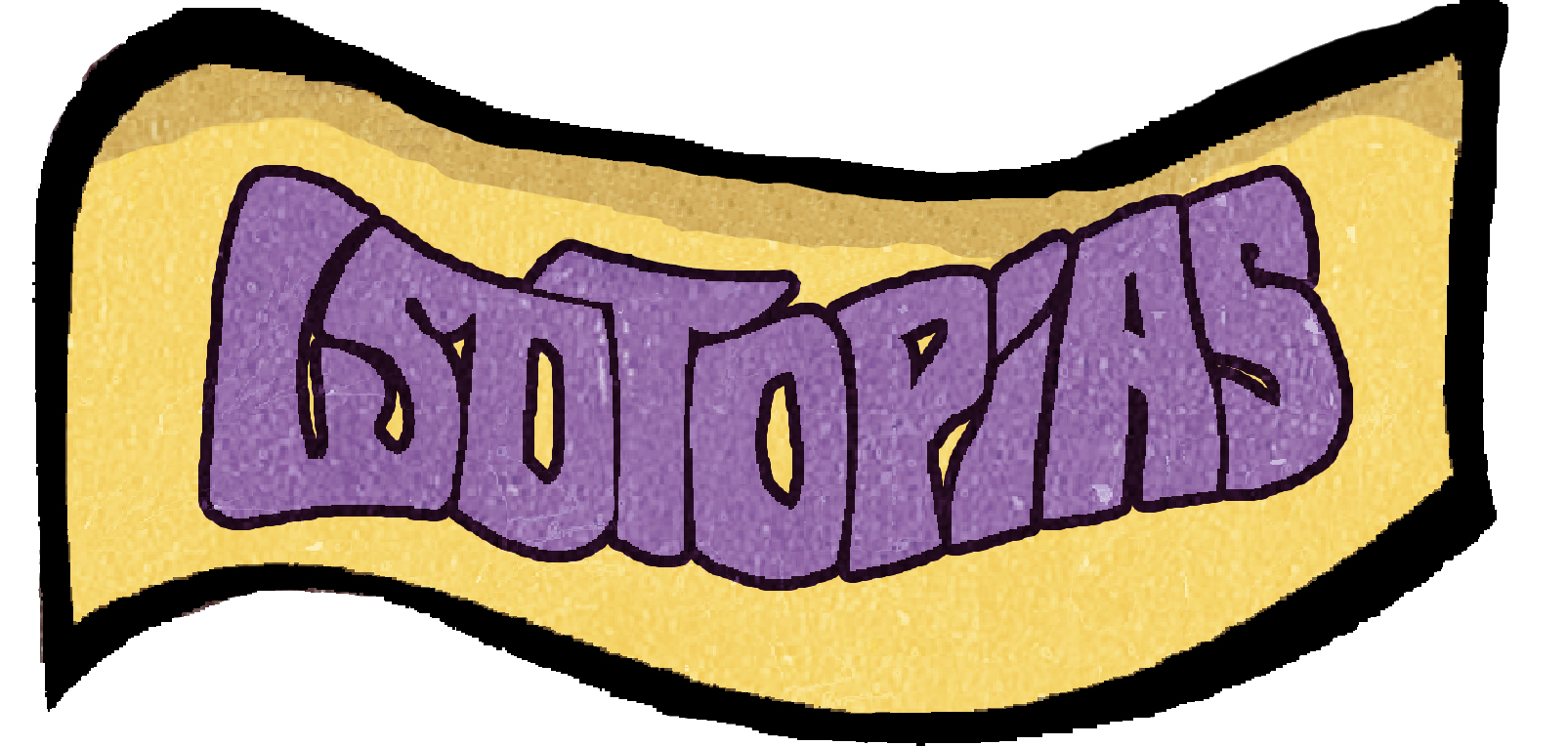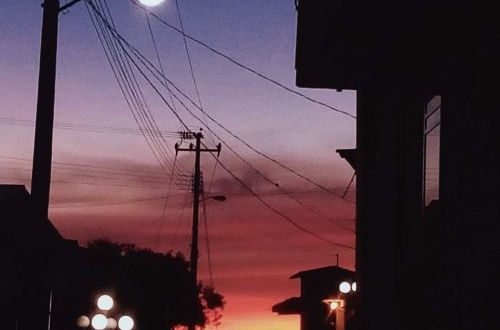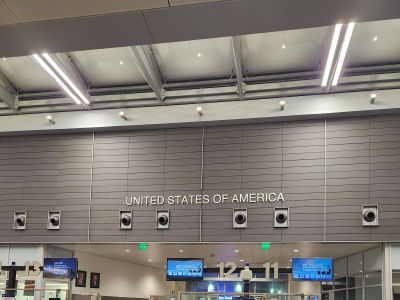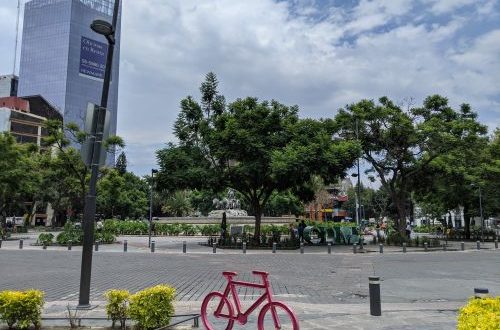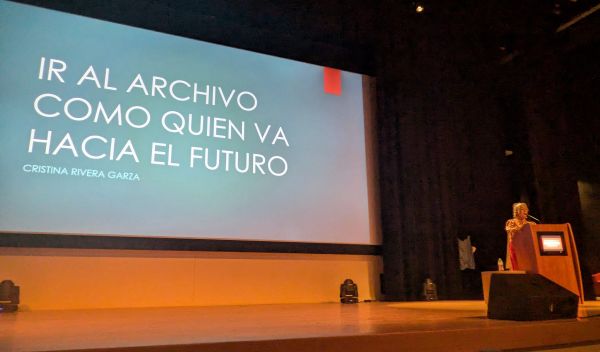
NIDO MIGRANTE 9 de noviembre
Desde la ventanilla del avión, San Diego parecía un edén, extenso, azul, alegre por el olor de sus florecitas brillantes. Asombrada me despedí de ella rumbo a Houston, tierra no antes explorada por mis pies. En mi cuaderno escribí “voy hacia una casa hecha de palabras”.
Texas me recibió con un cielo indeciso entre la tormenta y la calma. Una vez en el suelo, el calor húmedo me dio la bienvenida, por fortuna no era el calor alborotado que dicen azota a la ciudad en sus días de verano.
Más tarde, frente al cartel del Primer Congreso de Escritura Creativa en español en los Estados Unidos, sentí la emoción de reunirme por primera vez con otras voces migrantes que hablan y escriben en español desde distintos puntos del mapa, pero con un mismo pulso guiado por la memoria y la esperanza.
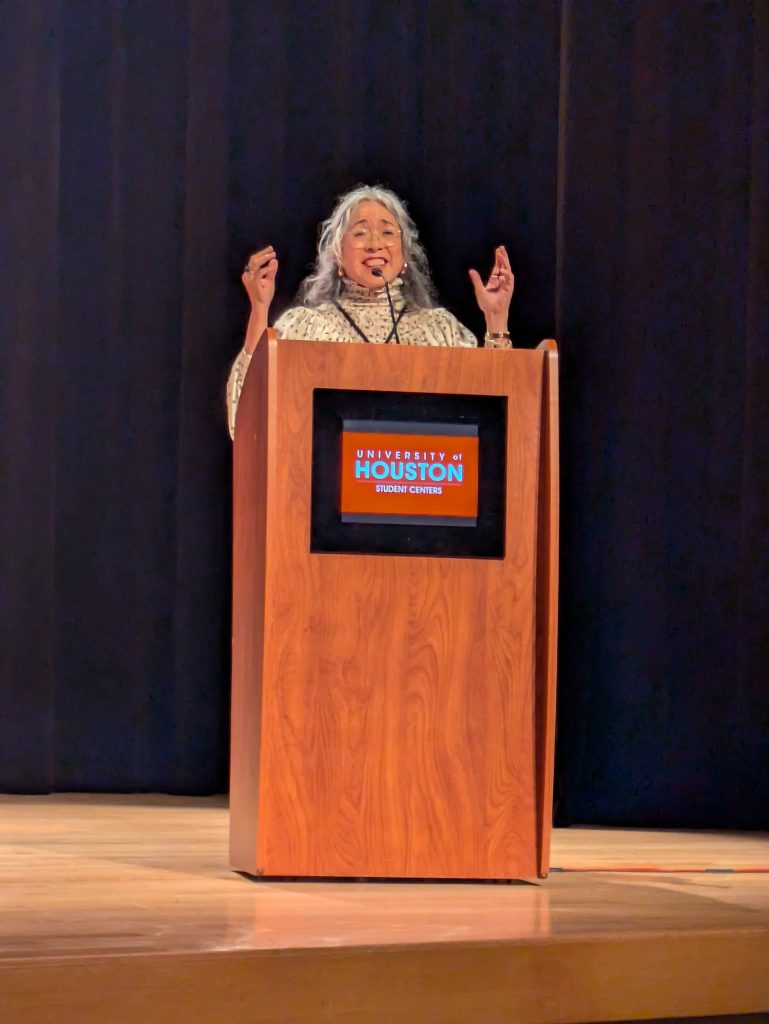
Durante dos días, del 23 al 25 de octubre, la Universidad de Houston se convirtió en un refugio. Los invitados al congreso nos sentimos verdaderamente bienvenidos. Yo ba con el grupo de amigas Trepidantes, así que juntas nos fuimos a la aventura. Todos los invitados nos encontramos en los pasillos, en las lecturas, en los silencios compartidos. Entre tantas voces, la de la directora del programa de Escritura creativa en español en la Universidad de Houston, Cristina Rivera Garza, resonó durante todo el congreso. Y sí, detrás de sus largos cabellos plateados, no se adivina la suavidad de su persona. Me sorprendió su generosidad, pues muchos escritores no son tan amables como ella. Su conferencia de cierre, titulada “Ir al archivo como quien va hacia el futuro”, fue una invitación a pensar la escritura como un acto de esperanza en medio de la oscuridad que nos rodea.
Cristina nos recordó que, aunque el pasado haya sido mejor, si es que lo fue, en el presente “el invierno de nuestra desesperación, todo eso está aquí, no podemos no mencionarlo, todo eso está enredado, aquí ante nuestros ojos: crisis climática, patriarcado apocalíptico, capitalismo del odio, guerra contra los migrantes, ataques a la democracia, epidemias de feminicidio y, claro, el genocidio que se lleva en este momento, hoy, en Palestina.”*
En ese momento, recordé todos los acontecimientos horribles del mundo. La angustia me invadió. Pero, la autora sostuvo con convicción:
“Yo no estaría aquí si no creyera profundamente que la escritura tiene la capacidad de encender un destello de esperanza, una chispa de valentía, en los tiempos más difíciles.”
Más adelante, añadió algo que se me quedó grabado:
“Escribir es menos una cuestión de contar una historia, y mucho más una cuestión de compartir una experiencia, una experiencia que va de cuerpo a cuerpo. (…) Un festival literario o un congreso como el nuestro se asemeja mucho al Amazonas: es un lugar donde se produce la atmósfera que hace posible respirar. Aquí venimos a tomar aire y a recuperar el espíritu, que es otra definición de respirar. Venimos a respirar sin pausa, pero con ritmo, a reconectar cuerpo con cuerpo, para que juntos, como una comunidad planetaria, podamos imaginar y construir ese otro mundo que necesitamos y queremos.”
Al escucharla, sentí que cada palabra encontraba un espacio dentro de mí. En medio de la fatiga que implica crear desde la migración, nos regaló una bocanada de aire fresco.
También me alegró conocer en persona a la escritora xalapeña Alaíde Ventura, cuya presencia me devolvió algo de los atardeceres con sabor a tierra recién llovida, de libros y libros y libros. Las noches del congreso fueron otra forma de comunidad. En una de ellas, Amandititita nos hizo bailar y cantar hasta el cansancio. Y la última noche, después del cierre del congreso, fuimos a un club de música latina en el que bailamos hasta las tres de la mañana, entre risas y sonrisas. A las seis de la mañana ya estaba en el aeropuerto rumbo a San Diego, sin dormir, pero con el corazón alegre.
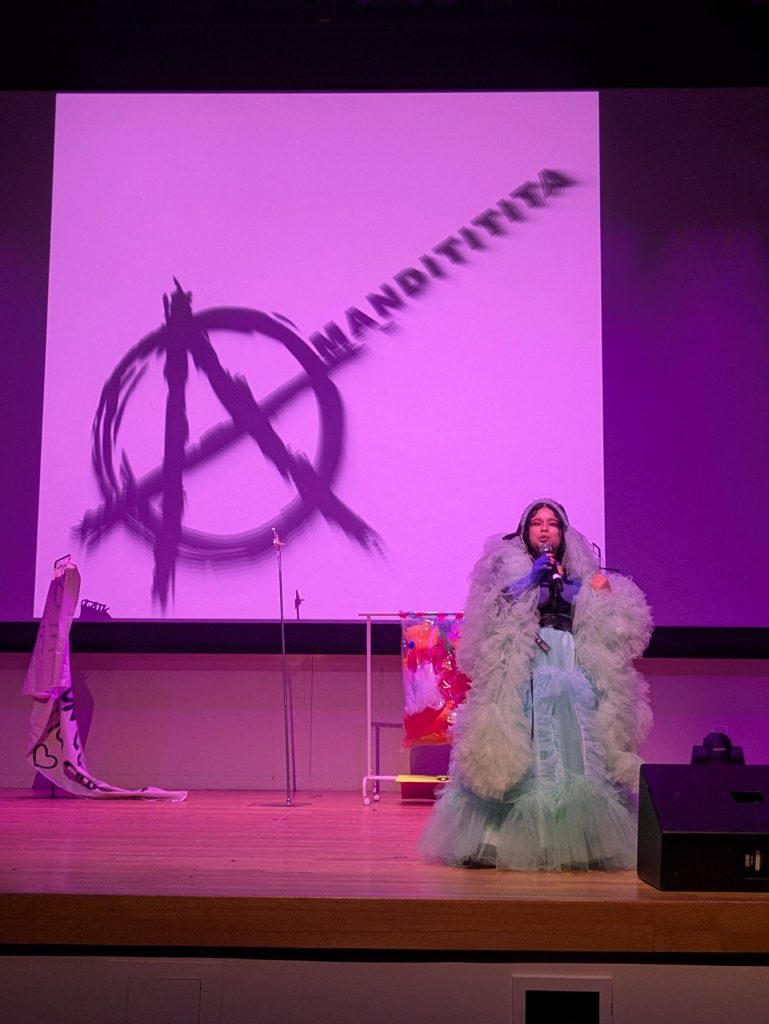
A veces la esperanza en mí se desdora, pero desde que volví, me acompaña de nuevo la ilusión que sentí al iniciar mi primer día de clases en la licenciatura. Deseo seguir leyendo, yendo al archivo, escribiendo y seguir contando lo que tengo que contar, porque leer y escribir, ahora lo sé con más certeza gracias a Cristina, también es una forma de respirar. Y de ir construyendo, palabra a palabra, otro mundo posible con el cual sostenerme.
*
From the airplane window, San Diego looked like an Eden, vast, blue, joyful with the scent of its bright little flowers. In awe, I said goodbye to it, heading to Houston, a land my feet had never explored. In my notebook, I wrote: “I’m going toward a house made of words.”
Texas greeted me with a sky undecided between storm and calm. Once on the ground, the humid heat welcomed me; fortunately, it wasn’t the wild heat people say scorches the city during its summer days.
Later, standing before the banner of the First Creative Writing in Spanish Congress in the United States, I felt the thrill of meeting, for the first time, other migrant voices who speak and write in Spanish from different points on the map, but with the same pulse, guided by memory and hope.
For two days, from October 23 to 25, the University of Houston became a refuge. We, the guests of the congress, felt truly welcomed. I went with the Trepidantes group of friends, so together we set off on this adventure. All of us, participants and guests, crossed paths in the hallways, in the readings, in the silences we shared. Among so many voices, that of Cristina Rivera Garza, director of the Spanish Creative Writing Program at the University of Houston, resonated throughout the congress. And yes, behind her long silver hair, one would not immediately guess the gentleness of her person. I was surprised by her generosity, many writers are not as kind as she is. Her closing lecture, titled “Going to the Archive as One Goes Toward the Future,” was an invitation to think of writing as an act of hope amid the darkness surrounding us.
Cristina reminded us that, even if the past was better, if it ever was, in our present, “the winter of our despair, all that is here; we cannot fail to mention it. It’s all tangled here before our eyes: climate crisis, apocalyptic patriarchy, capitalism of hate, war against migrants, attacks on democracy, epidemics of femicide, and, of course, the genocide taking place right now, today, in Palestine.”
At that moment, I recalled all the horrific events in the world. Anguish took hold of me. Yet the author declared with conviction:
“I wouldn’t be here if I didn’t deeply believe that writing has the power to spark a glimmer of hope, a spark of courage, in the hardest of times.”
Later, she added something that stayed with me:
“Writing is less about telling a story and much more about sharing an experience—an experience that goes from body to body. (…) A literary festival or a congress like ours resembles the Amazon: it is a place where the atmosphere that makes breathing possible is produced. We come here to take in air and recover our spirit, which is another definition of breathing. We come to breathe without pause, but with rhythm, to reconnect body with body, so that together, as a planetary community, we can imagine and build that other world we need and desire.”
Listening to her, I felt each word find a space within me. Amid the exhaustion that comes with creating from migration, she offered us a breath of fresh air.
I was also delighted to meet in person the Xalapa native writer Alaíde Ventura, whose presence brought back something of dusks that smell of freshly rained earth and of books and books and books. The nights of the congress became another form of community. On one of them, Amandititita made us dance and sing until exhaustion. And on the final night, after the congress’s closing, we went to a Latin music club where we danced until three in the morning, between laughter and smiles. By six a.m., I was already at the airport bound for San Diego, sleepless but with a joyful heart.
Sometimes the hope in me fades, but since I returned, the same thrill I felt on my first day of college has accompanied me again. I wish to keep reading, going to the archive, writing, and telling what I have to tell because reading and writing, as Cristina helped me understand more clearly, are also forms of breathing. And of slowly building, word by word, another possible world with which to sustain myself.
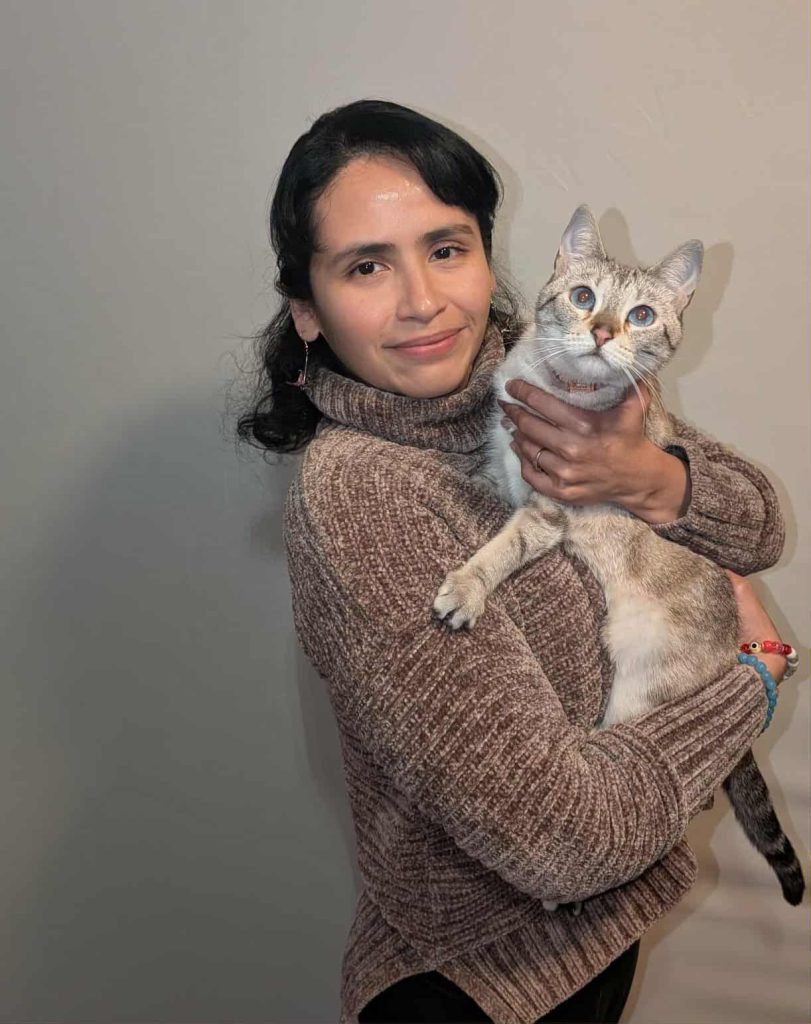
Yasmín Rojas es co-directora de Isotopías. Actualmente escribe su tesis doctoral sobre la poesía y las canciones de Idea Vilariño.

